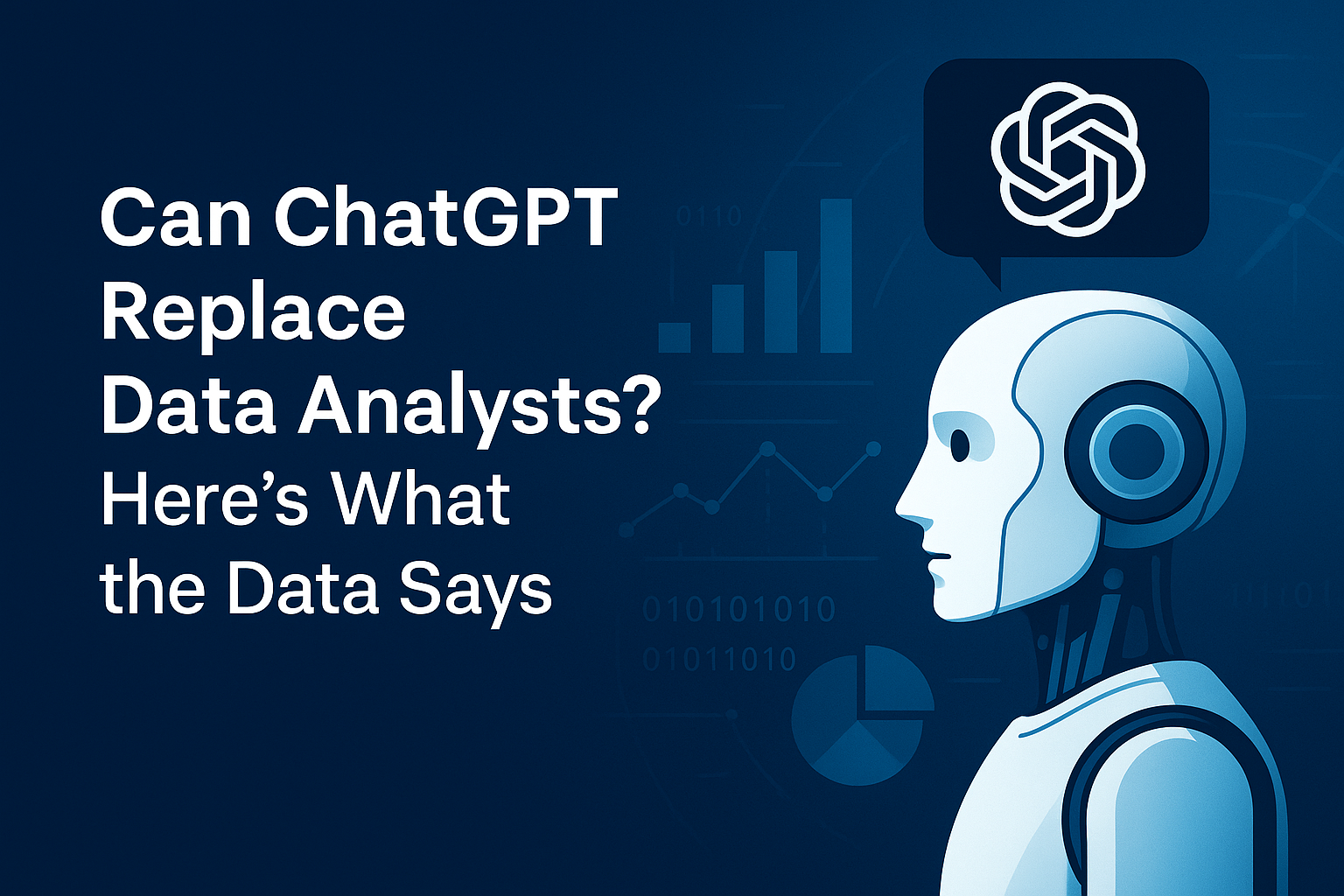
Can ChatGPT Replace Data Analysts? Here’s What the Data Says
Introduction
The rapid evolution of artificial intelligence (AI) tools like ChatGPT has transformed how businesses and individuals interact with data. From automating customer service to generating code, AI is increasingly becoming indispensable. However, one pressing question remains: Can ChatGPT replace data analysts?
To answer this, we must examine the capabilities of AI, the evolving role of data analysts, and what current data reveals about the future of this profession.
Understanding ChatGPT’s Capabilities
ChatGPT, developed by OpenAI, is an advanced language model capable of generating human-like text, summarizing information, answering complex questions, and even assisting in data interpretation.
Recent versions, such as GPT-4o, have enhanced multimodal abilities, enabling it to process not only text but also images and data patterns. With plugins and API integrations, ChatGPT can pull data from sources, visualize insights, and assist in basic analytical tasks.
The Role of Data Analysts: More Than Just Numbers
To assess if AI can replace data analysts, it’s essential to understand what data analysts do. Their role encompasses:
- Extracting and cleaning raw data
- Interpreting complex datasets
- Building dashboards and visual reports
- Applying statistical techniques for insights
- Communicating findings to stakeholders
- Providing strategic recommendations
While ChatGPT can assist with certain tasks, data analysts bring domain expertise, critical thinking, and a contextual understanding that AI cannot yet replicate.
What the Data Says: Adoption Trends and Limitations
According to a 2024 survey by Gartner, 61% of businesses have adopted AI tools to enhance data analysis processes. However, only 12% rely entirely on AI for analytical decision-making.
Key Insights:
- Automation is Complementary, Not Replacement:
AI tools like ChatGPT automate repetitive tasks—data cleaning, report generation, basic visualizations—saving time for data analysts to focus on higher-order thinking. - Contextual Understanding Remains Human-Driven:
Interpreting nuanced datasets requires business context, understanding of market dynamics, and the ability to align insights with organizational goals. AI lacks this contextual depth. - Bias, Errors, and Ethical Risks Persist:
AI-generated outputs are only as reliable as their training data. Without human oversight, there’s a risk of perpetuating biases or misinterpreting data, especially in sensitive industries like healthcare or finance.
Case Studies: Real-World Examples
- Marketing Analytics: Companies use ChatGPT to summarize campaign results, but human analysts translate those numbers into actionable marketing strategies.
- Financial Services: AI assists with data aggregation and trend detection, but analysts validate findings, ensure regulatory compliance, and interpret financial implications.
- Healthcare Research: AI can process large datasets for clinical studies, but human experts draw conclusions with medical knowledge and ethical considerations.
Can ChatGPT Replace Entry-Level Analysts?
In some routine, entry-level tasks, ChatGPT and similar AI tools demonstrate proficiency:
- Automating data summaries
- Generating simple reports
- Assisting in Excel or SQL queries
- Providing preliminary data interpretations
This may reduce the demand for purely task-driven analytical roles. However, for strategic, decision-influencing positions, human data analysts remain essential.
The Future: Augmentation, Not Elimination
Rather than replacing data analysts, ChatGPT is reshaping the profession. The future of data analysis will likely emphasize:
- Human-AI Collaboration: Analysts working alongside AI to accelerate insights.
- Upskilling Requirements: Data professionals will need AI literacy to leverage tools effectively.
- Focus on Strategic Analysis: With AI handling repetitive tasks, analysts can concentrate on complex problem-solving and strategic recommendations.
SEO Considerations for the Future Workforce
As businesses adapt, SEO trends reveal increased searches for:
- “AI in data analytics”
- “ChatGPT for business intelligence”
- “Will AI replace data analysts?”
- “Human vs. AI in data interpretation”
Educational platforms like Codedge Academy are already integrating AI tools into data science programs, ensuring future analysts possess both technical and AI collaboration skills.
Conclusion: Human Expertise Still Reigns
ChatGPT is a powerful tool transforming data analysis, but replacement is not imminent. AI excels at automating tasks but lacks the human ability to contextualize, apply critical thinking, and align data with business goals.
The real question isn’t “Will AI replace data analysts?” but “How will AI empower data analysts to deliver greater value?” The answer lies in collaboration, continuous learning, and embracing AI as an enabler, not a replacement.
In this evolving landscape, skilled data analysts who understand AI’s capabilities—and its limitations—will remain indispensable.
If you’re aspiring to thrive in this AI-augmented world, platforms like Codedge Academy offer the right programs to future-proof your career in data science.


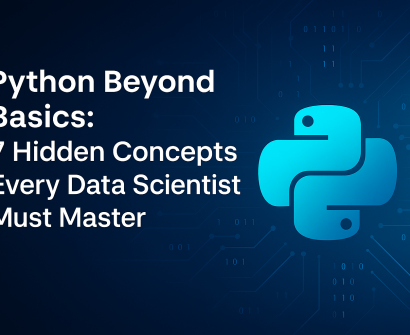
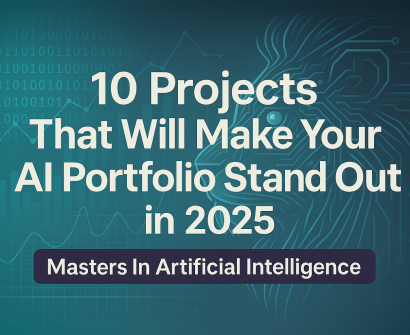
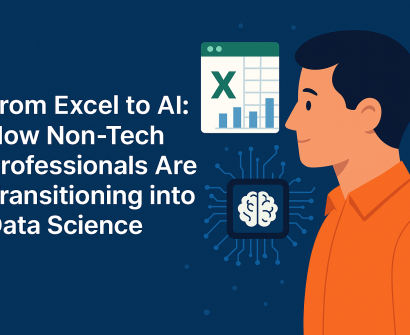
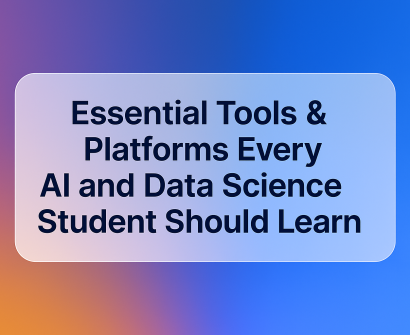
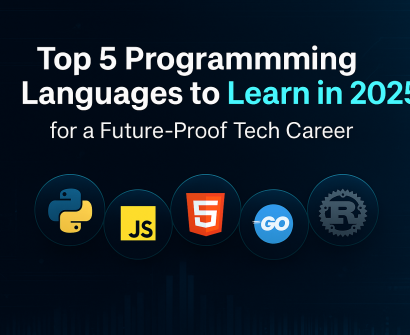

admin
At vero eos et accusamus et iusto odio dignissimos ducimus qui blanditiis praesentium voluptatum deleniti atque corrupti quos dolores et quas molestias excepturi sint.